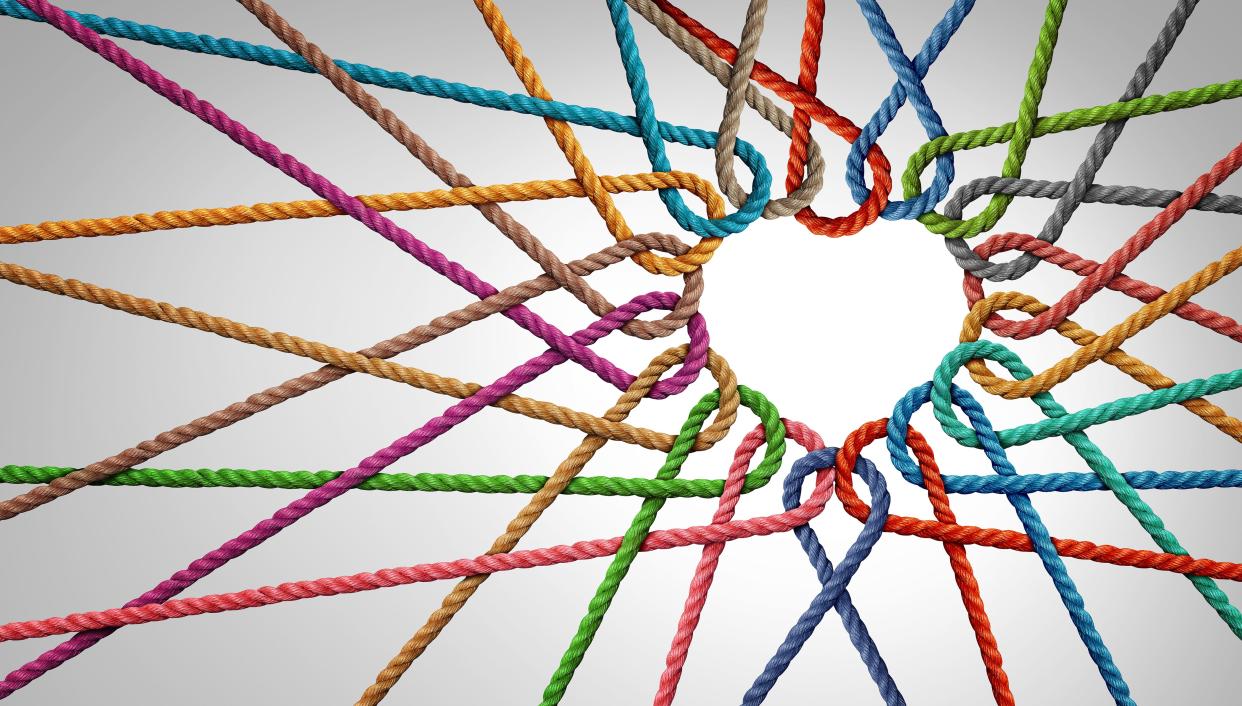Guest column: It's time to find our common threads and appreciate the good in all of us

As one of the most well-known Christmas carols reminds us, this is a time to focus on “peace on the earth, good will to men.” We are called to have open hearts for all; see the good in people from all walks of life; shine a light in the darkness; and recognize the things that unite rather than divide us.
Every major religion and cultural tradition marks at least one holiday during this season, some more familiar than others ― Christmas, Hanukkah, Kwanzaa, Epiphany, Nochebuena, Winter Solstice and many more. In spite of this rich diversity of celebrations, we Christians often frame everything about this holiday season solely through the lens of Christmas. How often, for example, do we hear Hanukkah called “Jewish Christmas?” Hanukkah most emphatically isn’t just Christmas for Jews. And it’s certainly more than a goofy Adam Sandler song. It is a distinct, though minor, Jewish holiday with poignant customs and moving lessons for all humanity.
As we become more aware of our neighbors’ beautiful and unique traditions, we can readily find the common threads that bind us together. Sadly, though, divisiveness and often outright hostility and malice seem to have a stranglehold on society. This discord is openly promoted and even celebrated, evolving into an increasingly vicious and toxic contagion that is in complete opposition to the spirit of this holiday season. Often, the same people who sing sacred holiday carols about “peace on the earth, good will to men” also encourage division and sectarian hate.
Hate spreads so perilously quickly, much like a wildfire. The much-publicized rise of antisemitic rhetoric and violence should be a warning to all of us. Over the past five years, according to the Anti-Defamation League, there has been a consistent and unprecedented increase in documented antisemitic incidents. This is mirrored in the general rise in hate crimes over the same period. Antisemitism typically is the “canary in the coal mine” that signals an increase in hate speech, harassment and violence more broadly against minorities. Hate hurts all of us ― perpetrators and bystanders included. As the Igbo people of Nigeria say, Onye ji onye n'ani ji onwe ya: "He who will hold another down in the mud must stay in the mud to keep him down.”
We would all be well served to heed another, less recognized verse of that much-loved carol by Edmund Sears: “yet with the woes of sin and strife the world hath suffered long; beneath the angel-strain have rolled two thousand years of wrong; and man, at war with man, hears not the love song which they bring; o hush the noise, ye men of strife and hear the angels sing.”
These lyrics, written at a time of intense contention and tremendous uncertainty in our country, bring to mind the reconciliation, respect, harmony and love that we customarily declare distinctive about this season. We stand at a prime moment to embrace our collective humanity, regardless of our cultural, religious, political or geographic differences — to love and appreciate the good that exists in all of us, to recognize the values and virtues that we share, and to leave an unmistakable legacy of kindness and acceptance for the future.

Melinda Parks is administrative coordinator and creative associate with Oklahoma Israel Exchange.
This article originally appeared on Oklahoman: Guest: It is time to embrace our collective humanity

